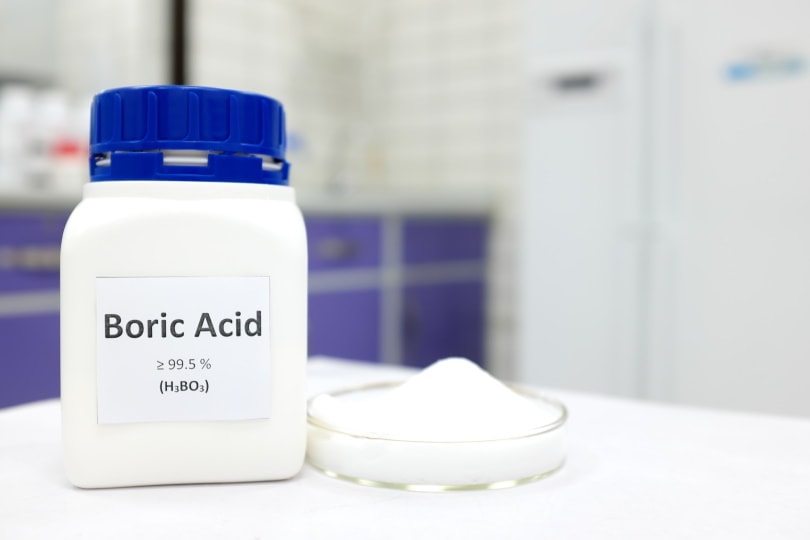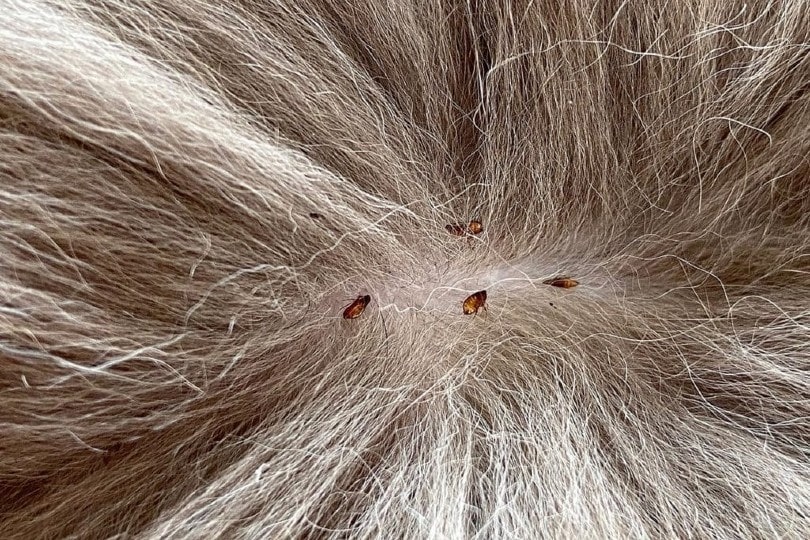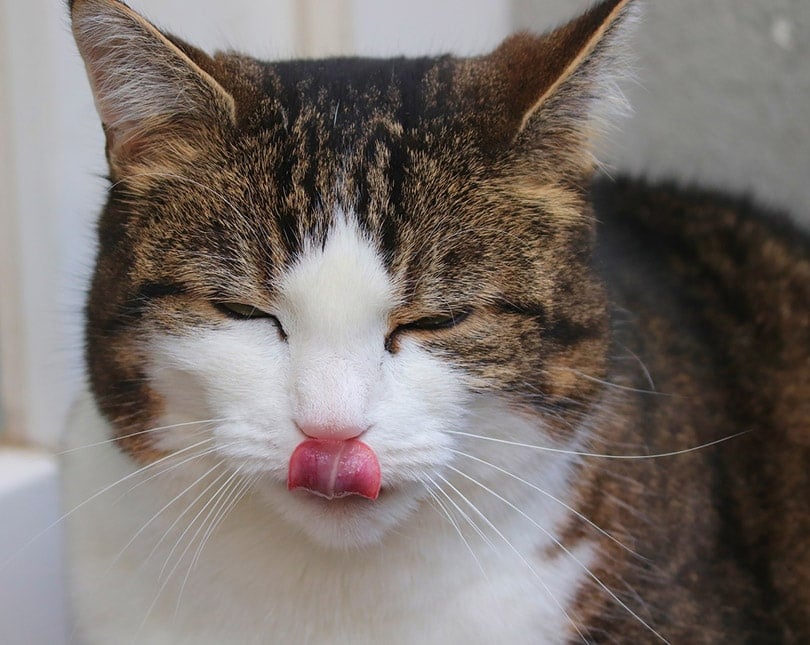Does Boric Acid Kill Fleas? Safety & Effectiveness Explained
By Jessica Kim
Updated on

Click to Skip Ahead
Fleas are extremely resilient pests and can be difficult to get rid of due to their small size, life cycle and ability to reproduce quickly. Adult fleas need a pet to feed on but the other three stages – eggs, larvae and pupae are invisible to the naked eye but account for a large part of a flea infestation in your home. Boric acid is a common ingredient found in some household flea treatment products.
So, boric acid can be helpful with getting rid of fleas, but it’s not the only product you’ll have to use for flea treatment. It needs to be used as part of an integrated flea control program. If you suspect your pet has a flea problem then contact your vet for help and advice on the best products to use in your house and which flea treatments to use on your pets.
We’ll go over some answers to common questions about boric acid and how you can use it to help eradicate fleas in your home.
What Is Boric Acid?
Boric acid is essentially a compound of boron, oxygen, and hydrogen. It often looks like table salt, but it’s flavorless and unscented. It’s commonly used in pest treatment formulas because of the negative effects it can have on these small insects.1 First, it can cause damage to an insect’s exoskeleton because of its abrasive texture. It kills insects when they ingest it because it damages their nervous system and digestive systems. It also acts as a dehydrator and can kill insects by drying them out.
When it comes to fleas, boric acid can be effective in killing the larvae because the larvae can end up ingesting or inhaling it as it travels around your home. Once fleas become adults, they only feed on blood. So, it’s very unlikely for adult fleas to consume boric acid.
Is Boric Acid Safe for Pets?

All pesticides will have some level of toxicity, boric acid is generally safe to use if instructions are followed and exposure to people and pets are minimized. Boric acid products must never be applied directly to your pet.
Signs of poisoning from ingesting boric acid include vomiting, diarrhea and even seizures. Boric acid is also a skin irritant and can be extremely irritating to the eye, so it’s important to be careful not to rub your eyes with your hands after handling boric acid.
While your pet may not get extremely sick from briefly inhaling or ingesting a small amount of boric acid, repeated exposure can lead to health complications. Your pet can end up experiencing chronic boric acid poisoning. Because it’s unclear how your pet will be affected by boric acid, it’s best to contact your veterinarian if you suspect your pet has ingested it.
How to Use Boric Acid to Kill Fleas
It’s best to look for EPA-approved boric acid products because they’re the safest to use in the home. Follow all label instructions and minimize exposure for both human and pet safety. Creating your own boric acid treatments can end up being ineffective and increases the chances of unintended overexposure and adverse effects on your pet or human family.
Boric acid is intended to only be used indoors because it becomes ineffective once it gets wet. So, dew, rain, and snow can all cause interference, and wind can also blow it away easily.
Boric acid is best used on your floors, carpets, and furniture. First, vacuum the area that you plan to cover with boric acid. Then, sprinkle a thin layer of boric acid across the surface. If you’re using boric acid on carpets or fabrics, use a brush to work it into the fibers. Leave the boric acid untouched for 12 to 48 hours. Once time has passed, vacuum the area thoroughly. You may need to apply boric acid to these areas a few times in order to see results.
Boric acid is mainly killing flea larvae and may indirectly disrupt egg development. So, speak to your vet to get the most appropriate flea product for your pet that will kill adult fleas.

Conclusion
Boric acid can be used as part of a regime to interrupt the flea life cycle, mainly targeting flea larvae. Use approved boric acid containing products to treat your house and follow the instructions carefully and ask your vet about the most appropriate flea control for your pet. If you ever find yourself in more severe circumstances, you can always also contact a professional pest control specialist to help you get rid of fleas in your home. Fleas can be extremely frustrating and difficult to get rid of, but with consistency and dedication to the process, your home and your pets will be flea-free once again.
See Also:
- Does Pine-Sol Kill Fleas? Vet-Approved Facts & Safety
- Does Rain Kill Fleas? Vet-Reviewed Tips On Safety & Effectiveness
Featured Image Credit: sulit photos, Shutterstock












